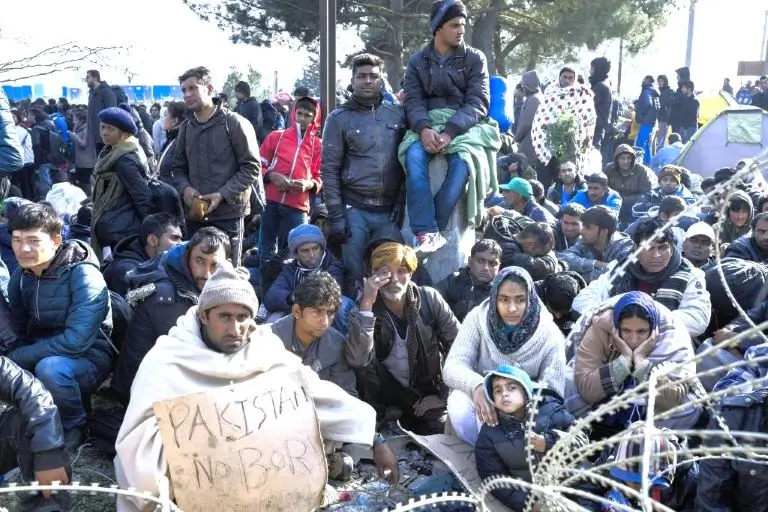Pakistan has approved several accords and covenants aimed at ending slavery within its borders. Its constitution contains a clause banning all types of slavery, including forced labor, reflecting its status as a democratic Muslim country. Some of the ratified conventions intended to prevent human rights violations include the Prevention and Control of Human Trafficking Ordinance of 2002, the Children Act of 1933, the Forced Labor Convention (No. 29) of 1930, the Slavery Convention of 1926, the Bonded Labour (Abolition) Act of 1992, and again, the Forced Labor Convention (No. 29) of 1930. Despite the presence of several NGOs, institutions, and covenants, this breach persists.
Various contemporary forms of slavery, such as debt bondage, serfdom, human trafficking, and child servitude, are explicitly defined by international law. In Pakistan, all these forms of slavery persist. Forced marriages, prostitution, sex work, organ trade, and forced conversions fall within this definition. The Legatum Prosperity Index ranks Pakistan as the world’s least developed country, placing it 138th out of 163 nations.
This ranking highlights significant challenges, including high levels of illiteracy, growing poverty, inadequate healthcare, and numerous other difficulties, all of which contribute to the exploitation of individuals through forced labor, prostitution, coerced unions, and other forms of human trafficking. The most prevalent form of slavery involves human labor, with Pakistan ranking tenth globally in the percentage of women, children, and forced laborers, despite having the lowest labor costs.
The prostitution industry in Pakistan, driven by poverty and exploitation, sees vulnerable individuals coerced into sex work under false promises of a better life.
With one of the world’s highest populations, approximately 39 percent of Pakistanis live in poverty, representing a nearly 60 percent increase since the 1998 census. Moreover, 60 percent of Pakistan’s population is under 30 years old due to high birth rates. Population growth often denies children access to education, compelling them to work to support their families. These children are employed in various sectors, including agriculture, brick and jewelry industries, clothing manufacturing, and the textile and apparel sector.
With minimal regulations and a weak police force, many underdeveloped areas in Pakistan see families deliberately deprived of basic necessities like food and water to coerce their children, especially girls, into working for them. These young girls are often required to work in exchange for these necessities, sometimes in businesses, affluent households, or even brothels. Under the guise of promising prestigious jobs in major cities, these women, typically young girls, are lured away from their families, only to be sold or coerced into sex work.
Modern slavery, encompassing human trafficking and forced prostitution, remains a severe issue in many countries, including Pakistan. The prostitution industry in Pakistan, also known as “sex trafficking” or “commercial sexual exploitation,” involves coercing, kidnapping, or fraudulently recruiting individuals into the sex trade against their will, particularly women and girls.
Poverty, gender inequality, and a lack of education contribute to the prevalence of modern slavery, with children often forced into labor to support their families.
Factors contributing to this issue in Pakistan include poverty, gender inequality, a lack of education, ineffective law enforcement, and corruption. Vulnerable individuals are forced into prostitution through threats, violence, or financial bondage, often falling victim to deceptive promises of employment or a better life. Victims of human trafficking and forced prostitution endure physical and mental abuse, exploitation, and frequently live in appalling conditions, lacking control over their lives and denied access to basic human rights.
Unlike many emerging countries like Bangladesh, India, and Nepal, Pakistan has not witnessed a setback in addressing this issue. In Pakistan, an Islamic country established in the name of Allah, such immoral behavior is unfortunately becoming more common. Major cities like Lahore, Islamabad, and Karachi even see police involvement in the pimping trade, with women from distant areas brought in and forced into modern slavery. Regrettably, this profession disproportionately affects men of all generations.
A nation desiring development and prosperity cannot overlook or tolerate the scourge of modern slavery. Everyone bears a moral responsibility to oppose this injustice and strive to eradicate it from our society, including individuals, groups, and decision-makers. By uniting and fighting against modern slavery, we can build a Pakistan where freedom, dignity, and human rights prevail, ensuring that no one’s conscience is tainted by injustice or exploitation.
